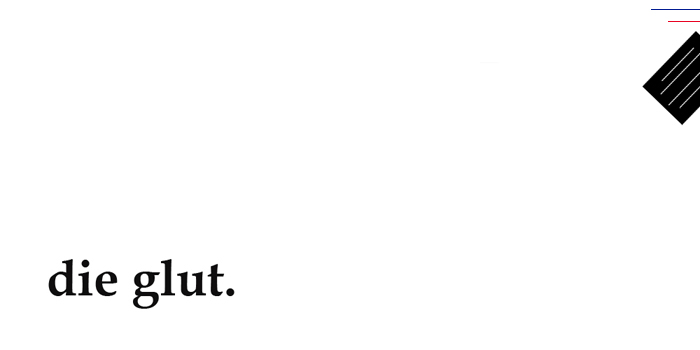Mutuma Ruteere reports about dilemmas of crime, human righs and politics.
Freitag, 24. Mai 2013
Sonntag, 19. Mai 2013
Lobbiysm: The food industry.

Let’s make it clear: The world food situation is ambivalent. On the one hand more than 800 million people suffering hunger and nearly 2/3 of them living in the poor global south. On the other hand a lot of industry states, for example the USA or countries in Europe, have problems with their health because of wrong food, too much sugar in products or just because they don’t know how to eat healthy. Not to know what is healthy for your body and furthermore not know in which dimension products are easy to consume limits the possibilities of consuming and also provides the fact for an elucidate of a balanced diet through different institutions. Two fields flank that process: The food industry, its rules, behavior and principles as well as consumer’s faith, acting and the inherent imagination of being under control by the food industry.
The food industry is an industry with a
huge impact in politics. In the European Union organizations and associations
(for example Food and Drink Europe) try to get influence in decision making of
the parliament, actions by individual player or processes between areas which
depend on each others. The power of the industry is influential and concentrated
on huge player, which were successful in stopping the food traffic light
labelling, which should signal if a product is healthy or not. Of course it’s
possible to mention lots of more examples by which the industry intervene. However
the important point refers to the possibility of the food industry in doing so
which means to have a legal framework which allows manipulating the political
process. This framework contains special norms, conventions, symbols and also a
collective awareness about the manipulating practice. One reason because the
industry manipulates the political process results from the products the
industry´s offering. The company Nestle for example sells their Cereals as a “delicious breakfast (…) made with whole grain” – this suggests being a healthy meal
although there are a lot of unhealthy ingredients in it.
The industry arguments it is not necessary
to implement such an instrument because the consumer has the skills as well as
the knowledge to get to a decision by himself. So the consumer realizes which
product is healthy and which he shouldn’t eat that much. In order to benefit
and to maximize the profit the food industry presents itself as a non-guilty,
transparent and honest global player. In this connection companies also try to
declare themselves as a victim of requirements and desires. This means they are
just answering and fulfilling the imagination the consumer wants.
By considering these facts it is necessary to
mention the projects by the non government organization LobbyControl. The
projects deal with issues all about lobbyism in Brussel, where the European policy
is made. With this it seems possible watching how much companies are trying to
influence Member of Parliament, the Parliament and so on. It won’t change the
influence, but it communicates a feeling of transparency in a nontransparent event.
Donnerstag, 9. Mai 2013
Donnerstag, 2. Mai 2013
Security and Control during Big Events.
Last weekend I discovered a dissertation with the title "The Production of Security and Control Rooms in the Context of Big Events: The Football World Championship 2006 in Hamburg".
In general the thesis focuses on the questions if big events have influence on security policy; are those events like for example the World Championship of 2006 one reason why security policy is incresing as well as it is possible to identify a social and spacial manifestation of this? The author tries to answer these questions by using qualitative research methods (f.e.interviews with security experts).
The dissertation is very interesting and available online (fortunately). You can download it here:
Abonnieren
Posts (Atom)
